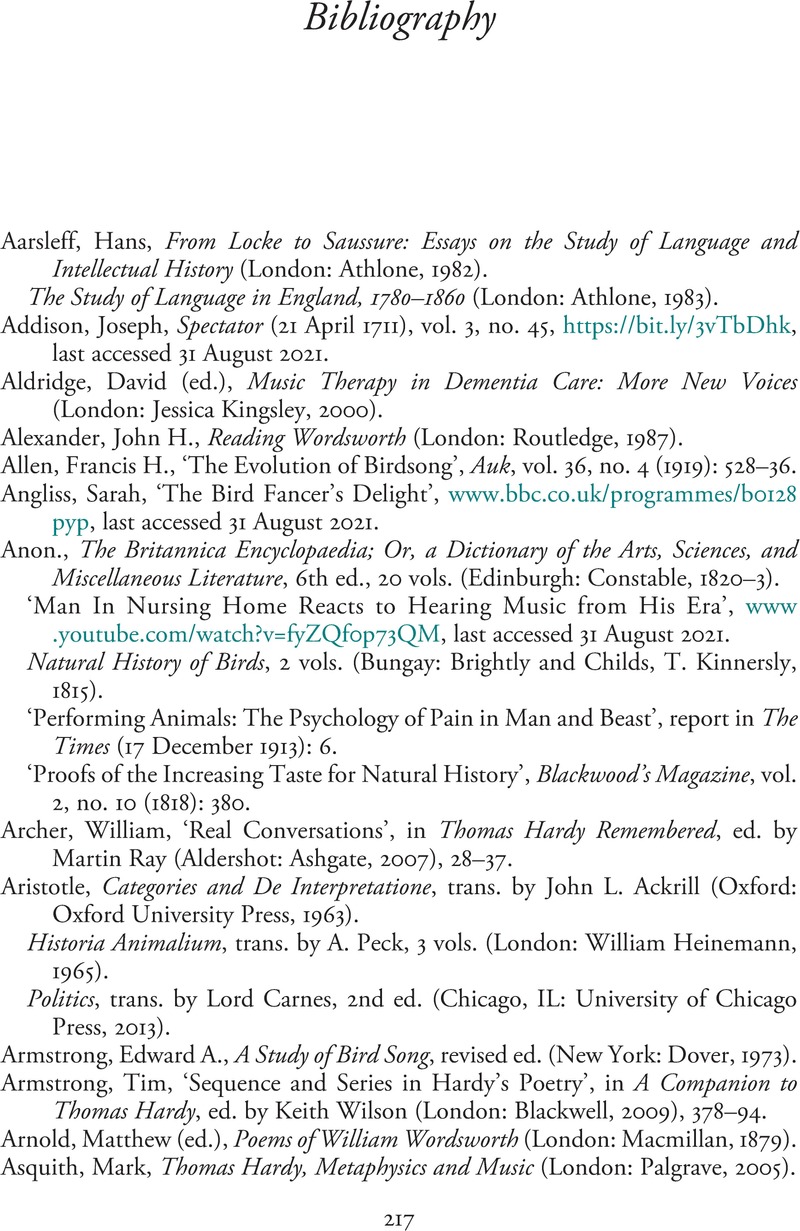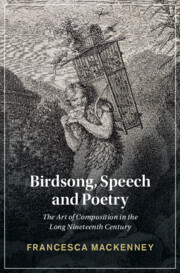Book contents
- Birdsong, Speech and Poetry
- Cambridge Studies In Nineteenth-Century Literature And Culture
- Birdsong, Speech and Poetry
- Copyright page
- Dedication
- Contents
- Figures
- Acknowledgements
- Introduction
- Chapter 1 The Science of Birdsong
- Chapter 2 The Science of Language:
- Chapter 3 ‘Prelusive Notes’
- Chapter 4 ‘Undersong’
- Chapter 5 ‘We Teach ’Em Airs That Way’
- Conclusion
- Notes
- Bibliography
- Index
- Cambridge Studies In Nineteenth-Century Literature And Culture
- References
Bibliography
Published online by Cambridge University Press: 15 September 2022
- Birdsong, Speech and Poetry
- Cambridge Studies In Nineteenth-Century Literature And Culture
- Birdsong, Speech and Poetry
- Copyright page
- Dedication
- Contents
- Figures
- Acknowledgements
- Introduction
- Chapter 1 The Science of Birdsong
- Chapter 2 The Science of Language:
- Chapter 3 ‘Prelusive Notes’
- Chapter 4 ‘Undersong’
- Chapter 5 ‘We Teach ’Em Airs That Way’
- Conclusion
- Notes
- Bibliography
- Index
- Cambridge Studies In Nineteenth-Century Literature And Culture
- References
Summary

- Type
- Chapter
- Information
- Birdsong, Speech and PoetryThe Art of Composition in the Long Nineteenth Century, pp. 217 - 232Publisher: Cambridge University PressPrint publication year: 2022



